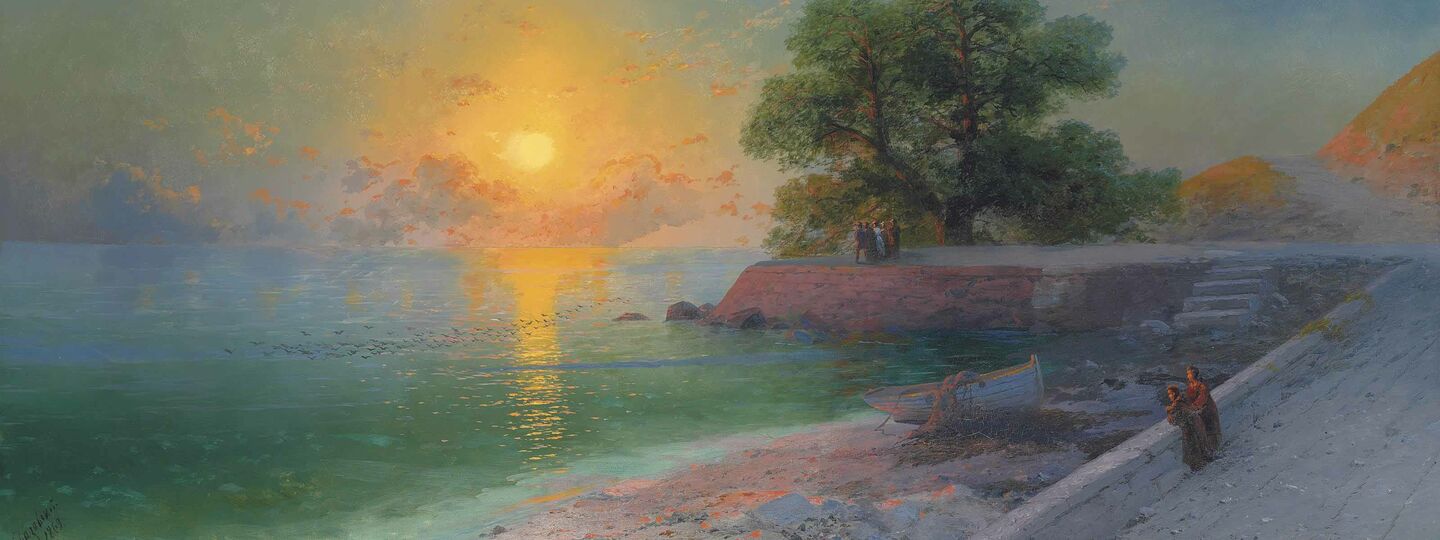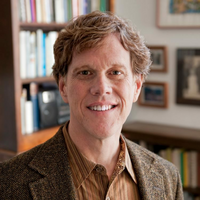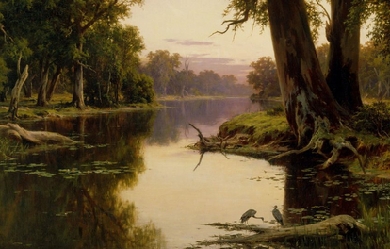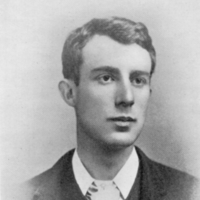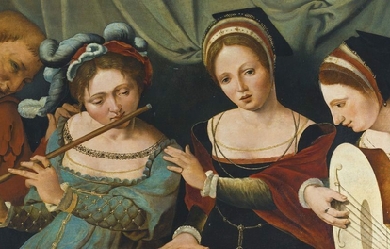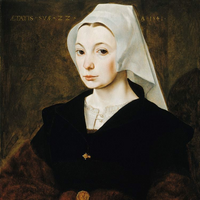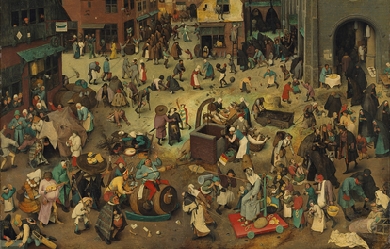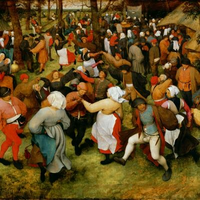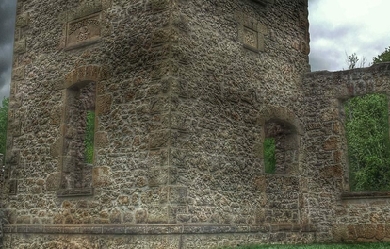
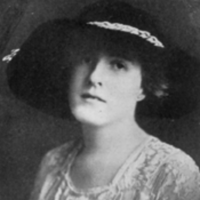
Agnes Ethelwyn Wetherald was born of English-Quaker parents at Rockwood, Ontario, April 26th, 1857. Her father was the late Rev. William Wetherald, who founded the Rockwood Academy about the middle of the last century, and was its principal for some years. He was a lover of good English, spoken and written, and his talented daughter has owed much to his careful teaching. He was the teacher whom the late James J. Hill, the railway magnate, had held in such grateful remembrance. Additional education was received by Miss Wetherald at the Friends' Boarding School, Union Springs, N.Y., and at Pickering College. Miss Wetherald began the writing of poetry later in life than most poets and her first book of verse, The House of the Trees and Other Poems, did not appear until 1895. This book at once gave her high rank among women poets. Prior to this, she had collaborated with G. Mercer Adam on writing and publishing a novel, An Algonquin Maiden, and had conducted the Woman's Department in The Globe, Toronto, under the nom de plume, 'Bel Thistlewaite.' In 1902, appeared her second volume of verse, Tangled in Stars, and, in 1904, her third volume, The Radiant Road. In the autumn of 1907, a collection of Miss Wetherald's best poems was issued, entitled, The Last Robin: Lyrics and Sonnets. It was warmly welcomed generally, by reviewers and lovers of poetry. The many exquisite gems therein so appealed to Earl Grey, the then Governor-General of Canada, that he wrote a personal letter of appreciation to the author, and purchased twenty-five copies of the first edition for distribution among his friends. For years Miss Wetherald has resided on the homestead farm, near the village of Fenwick, in Pelham Township, Weland county, Ontario, and there in the midst of a large orchard and other rural charms, has dreamed, and visioned, and sung, pouring out her soul in rare, sweet songs, with the naturalness of a bird. And like a bird she has a nest in a large willow tree, cunningly contrived by a nature-loving brother, where her muse broods contentedly, intertwining her spirit with every aspect of the beautiful environment.
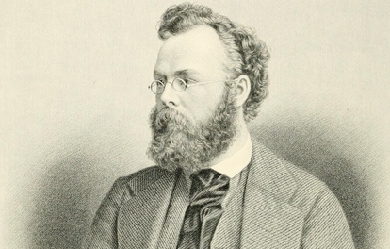
Robert Williams Buchanan (18 August 1841 – 10 June 1901) was a Scottish poet, novelist and dramatist. He was the son of Robert Buchanan (1813–1866), Owenite lecturer and journalist, and was born at Caverswall, Staffordshire, England. Buchanan senior, a native of Ayr, Scotland, lived for some years in Manchester, then moved to Glasgow, where Buchanan junior was educated, at the high school and the university, one of his fellow-students being the poet David Gray. His essay on Gray, originally published in the Cornhill Magazine, tells the story of their close friendship, and of their journey to London in 1860 in search of fame.
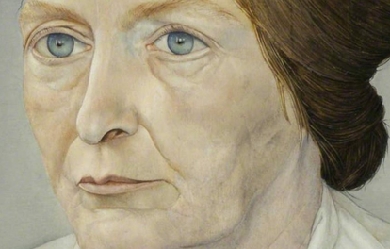
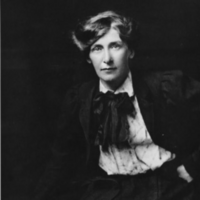
Cicely Mary Hamilton (née Hammill, 15 June 1872– 6 December 1952), was an English actress, writer, journalist, suffragist and feminist, part of the struggle for women’s suffrage in the United Kingdom. She is now best known for the play How the Vote was Won, which sees all of England’s female workers returning to their nearest male relative for financial support.. She is also credited as author of one of the most frequently performed suffrage plays, A Pageant of Great Women (1909), which first put Jane Austen on the stage as one of its “Learned Women.” Biography Cicely Mary Hammill was born in Paddington, London and educated in Malvern, Worcestershire. After a short spell in teaching she acted in a touring company. Then she wrote drama, including feminist themes, and enjoyed a period of success in the commercial theatre. In 1908 she and Bessie Hatton founded the Women Writers’ Suffrage League. This grew to around 400 members, including Ivy Compton-Burnett, Sarah Grand, Violet Hunt, Marie Belloc Lowndes, Alice Meynell, Olive Schreiner, Evelyn Sharp, May Sinclair and Margaret L. Woods. It produced campaigning literature, written by Sinclair amongst others, and recruited many prominent male supporters. Hamilton supplied the lyrics of “The March of the Women”, the song which Ethel Smyth composed in 1910 for the Women’s Social and Political Union. In the days before radio, one effective way to get a message out into society and to have it discussed was to produce short plays that could be performed around the country, and so suffrage drama was born. Elizabeth Robins’s Votes for Women and Cicely Hamilton and Christopher St. John’s How the Vote Was Won are two predominant examples of the genre. Hamilton also wrote A Pageant of Great Women, a highly successful women’s suffrage play based on the ideas of her friend, the theatre director Edith Craig. Hamilton played Woman while Craig played the painter Rosa Bonheur, one of the 50 or so great women in the play. It was produced all over the UK from 1909 until the First World War. Hamilton was a member of Craig’s theatre society, the Pioneer Players. Her play Jack and Jill and a Friend was one of the three plays in the Pioneer Players’ first production in May 1911. During World War I Hamilton initially worked in the organisation of nursing care, and then joined the army as an auxiliary. Later she formed a repertory company to entertain the troops. After the war, she wrote as a freelance journalist, particularly on birth control, and as a playwright for the Birmingham Repertory Company. In 1938 she was given a Civil List pension. Hamilton’s Theodore Savage (1922, vt. Lest Ye Die 1928) is a science-fiction novel about a Britain devastated by a war. In July 2017, the Finborough Theatre staged the first London production of Hamilton’s play 'Just to Get Married’ in over 100 years. It received positive reviews (4 stars) from The Times The Observer The Evening Standard and The New York Times The production was directed by Melissa Dunne and the cast included Tania Amsel, Nicola Blackman, Joanne Ferguson, Lauren Fitzpatrick, Jonny McPherson, Stuart Nunn, Philippa Quinn, Simon Rhodes and Joshua Riley.
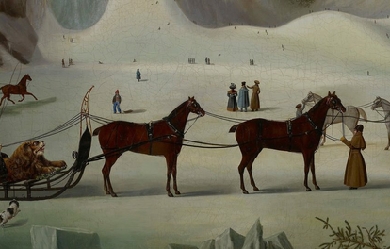
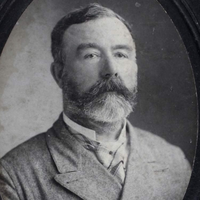
Edward William Thomson was born in Toronto township, county of Peel, Ontario, February 12th, 1849. His father was William Thomson, grandson of Archibald Thomson, the first settler in Scarboro. His grandfather Edward William Thomson, was present at the taking of Detroit, and served with distinction under Brock at Queenston Heights; and was afterwards well known in Upper Canada as Col. E. W. Thomson of the Legislative Council, and as the one successful opponent of William Lyon Mackenzie in an election for the Legislature. The mother of the present E. W. Thomson was Margaret Hamilton Foley, sister of the Hon. M. H. Foley, twice Postmaster-General of the united Canadas. The future poet was educated at the Brantford Grammar School, and at the Trinity College Grammar School at Weston; but when about fourteen years of age, he was sent to an uncle and aunt in Philadelphia and given a position in a wholesale mercantile house as 'office junior.' Finding this employment very uncongenial, he enlisted in the Union army, in October, 1864, as a trooper in the 3rd Pennsylvania Cavalry. This corps was engaged twice at Hatcher's Run, and was with Grant when he took Petersburgh. Discharged in August, 1865, he returned to the parental home at Chippewa, Ontario. In June, 1866, when the Fenians raided Upper Canada, young Thomson promptly enlisted in the Queen's Own, and was in action at the Ridgeway fight. The following year he entered the profession of Civil Engineering, and in 1872 was registered a Provincial Land Surveyor. He practised his profession until December, 1878, when at the invitation of the Hon. George Brown, he joined the staff of The Globe, Toronto, as an editorial writer. Four years later the Manitoba boom attracted him, and he practised surveying for two or three years in Winnipeg. In 1885, he rejoined The Globe staff, but retired again in 1891, because of his opposition to the Liberal policy of Unrestricted Reciprocity. Shortly afterwards he was invited to join the staff of the Youth's Companion. He accepted and remained for eleven years. Since 1903, he has lived in Ottawa, employed as a newspaper correspondent and engaged in literary work.The Many-Mansioned House and Other Poems was issued in 1909. His poems, like his short stories, are lucid, vital, original. References http://digital.library.upenn.edu/women/garvin/poets/thomson.html
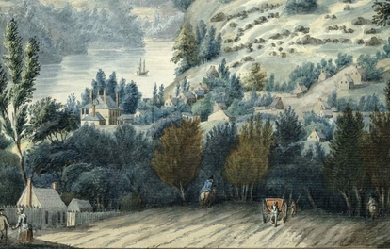
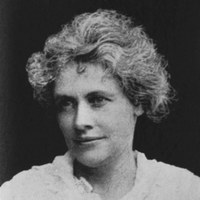
Florence Randall Livesay, daughter of Stephen and Mary Louisa Randal, was born at Compton, P. Q., and educated at Compton Ladies' College, now King's Hall. She taught for one year in a private school in New York, and subsequently for seven years was a member of the staff of the Evening Journal, Ottawa,–editor of the Woman's Page. In 1902, the Hon. Joseph Chamberlain requested Canada to send some teachers to the Boer Concentration Camps and Miss Randal, offering her services, was one of the forty chosen. She remained for one year and then returned to Canada, locating at Winnipeg. She joined the staff of the Winnipeg Telegram, and three years later that of the Manitoba Free Press. For several years she edited the Children's Department of the latter, but now writes as a 'free lance.' In 1908, she married Mr. J. Fred. B. Livesay of Winnipeg, Manager and Secretary of the Western Associated Press, Limited, and is now the mother of two girls. Of recent years, Mrs. Livesay has contributed poems, short stories and articles to Canadian and American magazines and journals, and a volume of her verse, entitled Songs of Ukraina is now being published by J. M. Dent & Sons. Mrs. Livesay's folk songs translated from the Ruthenian are unusual and notable, but her poetical gift is quite as discernible in her other poems. She has the imagination and the practiced touch of the artist., daughter of Stephen and Mary Louisa Randal, was born at Compton, P. Q., and educated at Compton Ladies' College, now King's Hall. She taught for one year in a private school in New York, and subsequently for seven years was a member of the staff of the Evening Journal, Ottawa,–editor of the Woman's Page. In 1902, the Hon. Joseph Chamberlain requested Canada to send some teachers to the Boer Concentration Camps and Miss Randal, offering her services, was one of the forty chosen. She remained for one year and then returned to Canada, locating at Winnipeg. She joined the staff of the Winnipeg Telegram, and three years later that of the Manitoba Free Press. For several years she edited the Children's Department of the latter, but now writes as a 'free lance.' In 1908, she married Mr. J. Fred. B. Livesay of Winnipeg, Manager and Secretary of the Western Associated Press, Limited, and is now the mother of two girls. Of recent years, Mrs. Livesay has contributed poems, short stories and articles to Canadian and American magazines and journals, and a volume of her verse, entitled Songs of Ukraina is now being published by J. M. Dent & Sons. Mrs. Livesay's folk songs translated from the Ruthenian are unusual and notable, but her poetical gift is quite as discernible in her other poems. She has the imagination and the practiced touch of the artist.
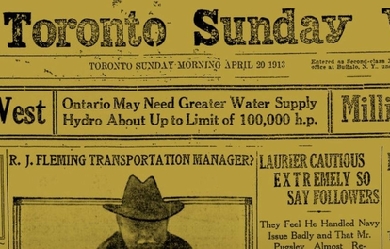
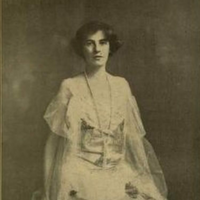
In a very real sense Miss Laura Elizabeth McCully is a Toronto writer, as, with the exception of one academic year in the United States and a few months in Ottawa, she has lived all her life in this city. She is a grand niece of the late Hon. John McCully, of Truro, Nova Scotia, one of the Fathers of Confederation; and is the daughter of Samuel Edward McCully, M.D., and Helen (Fitzgibbon) McCully. Her father is of Manx descent, and her mother is a descendant of the late James McBride of Halton county, Ontario, magistrate, who was one of the pioneers of this province, and who heroically cleared off forest and left to his heirs, one thousand acres of valuable farm lands. Miss McCully's poetry is enriched by classical illustrations, and expressed in forceful and melodious language. Her imagination relates us to the universe and to humanity. Wordsworth found new lessons in the fields and woods, and taught them; Lanier made trees, flowers and clouds our intimate friends; when we read Miss McCully's nature poems we are not conscious of the moralizing of the poet, we are in the glens ourselves looking at the afterglow, with the purity, the glory, the growth spirit and the transforming beauty of nature flowing into our lives. In a few flaming lines her stories reveal the love, the despair, and the ultimately triumphant faith of humanity. With tender pathos she unveils the evils of social and industrial conditions, and in clear tones arouses each soul, and makes it conscious of the splendour of the better conditions ahead, and thrills it with the determination to achieve for justice, freedom, and truth. – JAMES L. HUGHES, LL. D.


